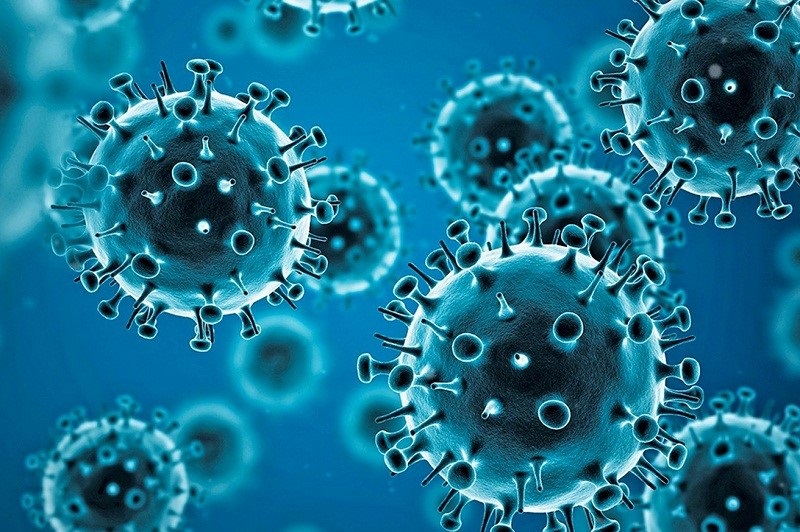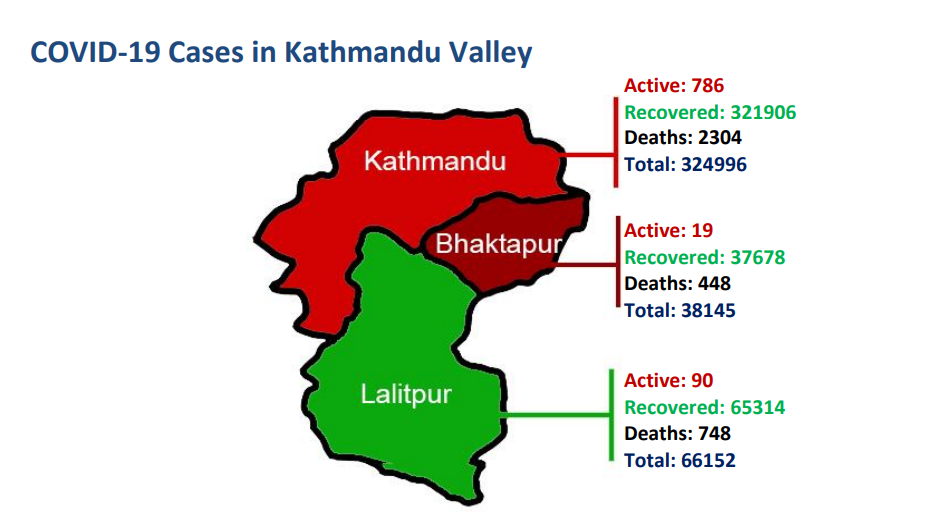Life & Health

The sub-variant of Omicron, BA.5, has already triggered a sharp rise in the number of Covid cases around the globe, including in Nepal.
The data from the Ministry of Health and Population (MOHP) shows that over 200 cases of coronavirus have been reported in the country in the past two days alone.
The Emergency Committee of World Health Organization (WHO) on COVID-19 concluded that the virus remains a Public Health Emergency of International Concern.
The Committee noted their concern about several interlinked challenges such as sub-variants of Omicron, like BA.4 and BA.5, continue to drive waves of cases, hospitalisation and death around the world.
Nepal first reported the BA.5 sub variant of the coronavirus in the first week of July.
Though the number of cases has increased, doctors say, serious severities from the infection have not yet been reported in new patients in Nepal.
“The Covid positive patients admitted in the hospital do not have severe symptoms, except fever and cough,” said Dr Ravi Shakya, the director at Patan Hospital.
The number of people seeking hospitalisation is not much either.
According to MOHP, out of the 1,284 active Covid cases as of July 15, only 35 have been admitted in health centres across the country. Of those admitted, 14 were given intensive care and only one patient was given ventilator care.

Doctors have pointed out that most Covid positives are not seriously ill.
“Only two patients admitted in the hospital have fever and cough. They are not in need of medical oxygen,” said Dr Khem Raj Bhusal, assistant professor internal medicine at Tribhuvan University Teaching Hospital (TUTH).
Earlier when the Delta variant was spreading in the country during the second wave of coronavirus, patients were in the need of high flow of oxygen.
That led to high demands for oxygen which caused a severe scarcity, prompting MOHP to appeal to people to refrain from hoarding oxygen.
WHO experts too have indicated that the contagions may be less severe.
Maria Van Kerkhove, the WHO's technical lead on COVID-19, told a news briefing on July 12: “We have not seen an increase in severity over other sub lineages of omicron from the preliminary data that we have from labs that are working on this.
“Our diagnostics continue to work. Our vaccines continue to work to prevent severe disease and death.”
The WHO has also pointed out that "BA.5 has a growth advantage over the other sublineages of Omicron that are circulating.”
Those who have been infected of coronavirus earlier and were fully vaccinated have also been re-infected of the coronavirus recently.
One of the staff nurses currently working at Sukraraj Tropical and Infectious Disease hospital in her social media post wrote, “Tested covid positive for the second time… symptoms were cough, sore throat, fever, malaise (tiredness)…”
Dr Prabhat Adhikari, infectious disease expert said: “This variant is good at evading the immunity build up either by vaccination or by earlier infection and it has the ability to transmit quickly.”
There is not much evidence that BA.5 is more dangerous than any of the other omicron variants.
“There are no patients admitted in our hospital for Covid treatment,'' said Dr Sundar Hyoju, coronavirus focal person at Nepal Police Hospital. The hospital was one of the hospitals dedicated by the Nepal government to treat coronavirus patients.
While rising cases have worried Nepalis, no new deaths from the coronavirus has been reported recently.
“The vaccine has been proved effective in reducing severity and deaths,” said Dr Adhikari.
Dr Janak Koirala, professor of infectious disease at Patan Hospital, told NepalMinute: “This new variant is different from the delta variant in terms of severity. It will make people suffer from fever. People will cough for a long time.”
The World Health Organization has urged governments to regularly review and adjust their Covid-19 response plans.
“New waves of the virus demonstrate again that the COVID-19 is nowhere near over,” WHO Director-General Tedros Adhanom Ghebreyesus said in a virtual press conference from Geneva. “As the virus pushes at us, we must push back.
“As transmission and hospitalisations rise, governments must also deploy tried and tested measures like masking, improved ventilation and test and treat protocols."

_11zon1681280198.jpg)




